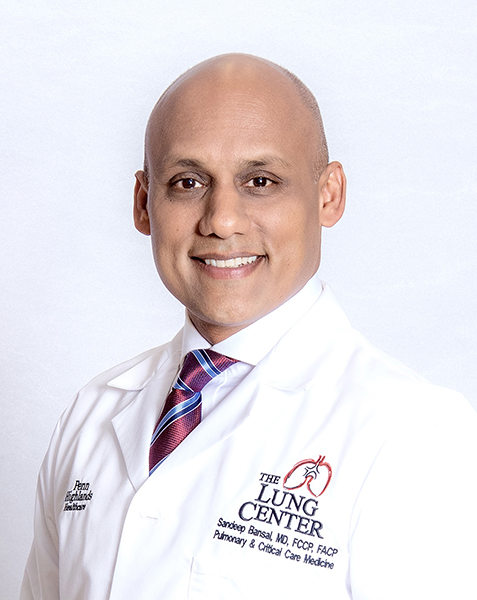As Penn Highlands Healthcare grows to make high-quality healthcare more accessible to patients across our region, every new advancement results from a considerable process of identifying the needs of residents in our area and responding to those needs with the greatest impact possible.
With Penn Highlands Brookville, PH Clearfield, PH Elk, and PH Huntingdon looking to Penn Highlands DuBois as the hub—and with construction for PH DuBois’s new trauma unit underway since this past summer—patients of the PH DuBois Intensive Care Unit are beginning to receive care in a way that’s emerging as a powerful new model in healthcare. “With our trauma program starting, Medical Staff leadership decided this was the right step for our community,” says Sandeep Bansal, MD, Medical Director of The Penn Highlands Lung Center and Intensive Care Services. Bansal says the new structure, which went into effect this month, is similar to that of a “closed ICU” system, which employs its own ICU specialists to make the final decisions regarding who gets admitted to the ICU and what treatment they receive. Each patient admitted will first consult with a dedicated provider from this specialized team who focuses solely on intensive care medicine and is therefore extraordinarily equipped to treat these very ill patients. Then these patients will have the option to be treated by that team of intensive care providers. This ensures that all treatment is according to the latest insights.
This dedicated team of intensive care providers will include two in-house doctors, called “intensivists.” For seven-day periods, one intensivist will work during the daytime and will be available by beeper or call at nighttime (and located within 20 minutes of the hospital). Each intensivist will also have support at night from an advanced practice provider, usually a physician assistant. “This means 24-seven coverage with a trained intensive care team,” Bansal says. “If there’s a problem, the patient doesn’t have to wait. The specialist will be right there to attend to the case in a more timely manner, and give the patient the best possible chance at their outcome.”
Bansal emphasizes that the team remains in communication and collaboration with the referring clinician and may also seek other specialists’ advice. Then the decisions about treatment are made in-person, in real-time by the ICU specialists.
What does this mean for patients and their loved ones? Potentially everything. According to the most widely used ICU mortality prediction scores, this staffing model is shown to result in demonstrable decreases in mortality rates and concurrent symptoms. Plus, in research presented last December at the American Thoracic Society’s International Conference in Dallas, the implementation of this model at a healthcare center elsewhere in the U.S. had caused a 19.3 percent decrease in central line-caused bloodstream infections. Catheter-associated urinary tract infections decreased 100 percent, as did cases of ventilator-associated pneumonia. Bansal also points to data that shows closed ICUs are far better at reducing ventilator days, days on dialysis, and days in the ICU. “The data in favor of this model is so overwhelming as to be incontestable,” Bansal says. “The quality of care is so strong.”
Bansal reports that under his corporation, Lung Innovations Network, he will be directing the service to oversee quality and the team’s schedules. The first new physician to be hired, Dr. Ali Hakim Shoushtari, started his dedicated rotation on October 1, while the second, Dr. Arindam Ghatak, MD, comes from Olean, New York and has trained in New York City. Meanwhile, one of Bansal’s current physician assistants, Chris Curran, PA-C, has come on board, as will Cierra Sechman, PA-C, who has worked until now in the PH DuBois Emergency Department. “This team has a tremendous level of experience,” Bansal says. “They’re all going to be great additions.”
When you or a loved one experiences a medical event that requires critical care, you can focus on what’s most important—healing—with confidence that the best hands are in charge. To learn more about what we’re bringing to your community, visit www.phhealthcare.org/footprint.
Introducing an Updated Intensive Care Model for Patients throughout Our Region

